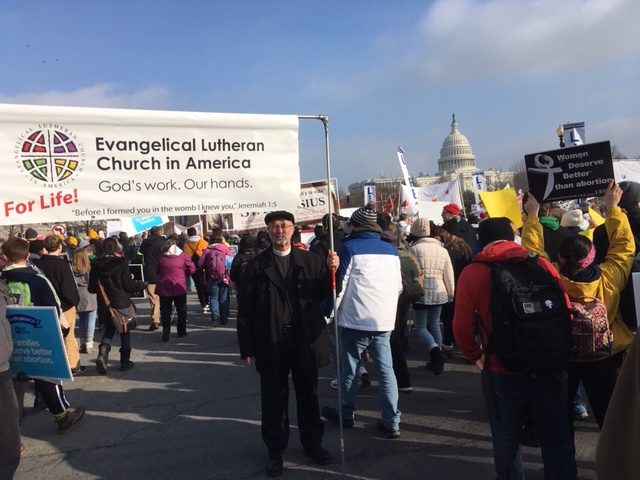Feed My Sheep

I have appreciated Don Brandt’s wisdom and leadership in Lutheran renewal through the years, and I welcomed his article in last month’s CORE Voice. He accurately diagnoses the biggest single problem that runs through all of our Lutheran denominations in North America — our desperate shortage of pastors. And I almost agree with his proposed solution.
Don points out that even when we had more than enough pastors, there were not nearly enough willing to serve in smaller rural and inner-city settings. He notes that these congregations became training locations for pastors who would move on in a few years to a larger church. This does not provide the stability of leadership a congregation needs to be effective in mission and outreach.
I would add that in our time even larger congregations are having difficulty finding ordained pastors. In my North American Lutheran Church, we were told at our pastors’ convocation that some congregations have had profiles posted for a year or more but have received zero interest from pastoral candidates. The ELCA synod I had been a part of recently notified its congregations that because 40% of its churches lack either a called or interim pastor, they no longer have enough supply pastors or authorized lay leaders to provide leadership for these congregations every Sunday.
As an NALC dean, I tell congregations that the total cost of having a pastor (not just the compensation) will approach or involve six figures. Many pastors now serving “full-time” can only do so because their spouses provide insurances and other benefits. Retirements are outpacing ordinations. I don’t think we in the NALC are alone in these challenges.
So far Don and I are on the same page. And I fully agree that what we have been doing is not going to provide the pastors we need to lead our congregations in mission in the 21st century. Not only do we not have people who are in a position to take three or four years out of their lives to pursue MDiv degrees (even online), but many of our congregations cannot afford the salaries required to cover living expenses plus student loan debt (which can easily amount to $50,000 for seminary alone and at least as much for college).
My quibbles with Don are two-fold.
First, and probably minor, he repeats the common misconception that Luther taught something called “the priesthood of all believers.” For all that we have heard this repeated from lecterns and pulpits, Luther taught no such thing. It is actually a 19th Century Calvinist concept. Luther did teach a wonderful understanding of Christian vocation (see the oldie but goodie by Gustav Wingren, Luther on Vocation, Muhlenberg Press, 1957). Whereas the medieval church taught that church vocations were “religious” but others were not, Luther understood that all Christians exercise our Baptism in the world as we love God by serving our neighbors, and that we do so through our variety of callings. These grow out of the Fourth Commandment that establishes the orders and structures of society. Thereby all legitimate callings can be “religious,” as long as Christians engage in them out of love for God and neighbor.
Luther also taught that because the bishops refused to ordain pastors for the churches of the Reformation, the princes and magistrates should claim the authority of their Baptism and ordain pastors to serve these churches. This was not a free-for-all. Luther called on legitimate authorities to meet the need, and to do so by ordaining pastors to serve these congregations. More on that later.
In the Augsburg Confession, Article V makes it clear that the “Holy Ministry” is of divine origin, and that it consists in preaching the Gospel and administering the sacraments. Article XIV insists that nobody is permitted to preach or teach publicly in the churches or administer the sacraments without a “proper call” (rite vocatus in Latin, which in the context means “ordained”). The sad reality is that none of our Lutheran church bodies are observing Article XIV today.
As I see it, the problem is the professionalization of the clergy, which took hold in the 1950’s as pastors wanted to have the social status of lawyers, doctors, and others. The Bachelor of Divinity degree was changed to a Masters of Divinity with absolutely no change in the program (a similar thing happened to law degrees), and spiritual qualifications for ministry were largely replaced by academic ones.
It didn’t help that the primary requirement to teach in our seminaries was to have an earned PhD degree and not vital parish ministry experience. And with few exceptions PhD degrees could only be secured in religion departments of secular universities, which had no accountability to the “faith once delivered to the saints.”
Don proposes that the solution is to have lay-led congregations. My counter-proposal is that we ordain those people in congregations who have the gifts and call for ministry, which includes seeking realistic and reasonable ways to equip them to serve faithfully as pastors to God’s people in those places.
Ordination historically is not an academic certification. It involves the Body of Christ discerning God’s call on a person, and then gathering to lay hands on that person and pray for them to receive the gifts they need to serve God’s people faithfully. Does this communicate some sort of “indelible character”? I do not believe that ordination makes a person spiritually superior or gives them some special powers, but neither dare I say that these prayers are inconsequential. Paul called on Timothy to “stir into flame” the gift he had received through the laying on of hands (2 Timothy 1:6).
I am not arguing for dumb pastors (although the smart-aleck in me might wonder whether the academic captivity of the churches has alleviated this concern). We were ordaining pastors in North American Lutheranism for 125 years before we had a seminary. Their training and preparation was through mentorship. There is no reason we couldn’t have more than one clergy roster, or that we could not establish a system of ongoing mentoring for those unable to pursue the academic track.
I wish we could fill all our pulpits with faithful pastors formed by four-year residential programs in our seminaries. But as is so often the case, the perfect can be the enemy of the good. We need pastors in many of our congregations right now, not ten or fifteen years from now, and simply working harder at what has not been working fits the classic definition of insanity, if we imagine the results will be any different.
To return to Luther: I believe on the basis of the Augsburg Confession that all God’s people deserve and need to be fed with the Word and the Sacraments from properly ordained persons, and that the most important single task of any church judicatory is to provide such pastors for all its congregations. If the judicatory insists on procedures that effectively starve the people in congregations spiritually by denying them Word and Sacrament, perhaps the congregation should adopt Luther’s example and, after prayerful discernment and conversation, ordain people within their own fellowship to serve them. I view this as Luther viewed his proposal for the princes and magistrates to ordain as a “last resort” sort of option, and I am sure judicatory officials will not be pleased if congregations take matters into their own hands. The solution is for the officials to find creative ways to feed the lambs of our Lord’s flock with the Bread of Life. I suspect that here Don and I come very, very close to agreeing. Such a congregation needs to be prepared to accept discipline from their judicatories. [Here is where LCMC with its contract pastors offers a viable option, although I believe they need policies in place to protect people from abusive clergy.]
God has established the Holy Ministry of Word and Sacrament, and He has given us the task of determining how to structure and organize it in this time and place. The structuring of the Office of the Ministry has changed many times throughout history, and needs to change today. I fully agree with Don that what we are doing has not served us well for many decades and will become an even greater problem as time passes.
The answer is to re-evaluate how we discern that God has called a person to Holy Ministry. Once we make that discernment, after prayer and serious conversation, the solution is to ordain the person. St. Peter would not be acceptable as a pastor in most of our Lutheran churches today. We need to look at God’s call and gifts and not merely at academic degrees to determine whom God has chosen to preach the Gospel and administer the sacraments in our congregations.
To all decision-makers in our church bodies, our Lord says: “Feed my sheep.”













